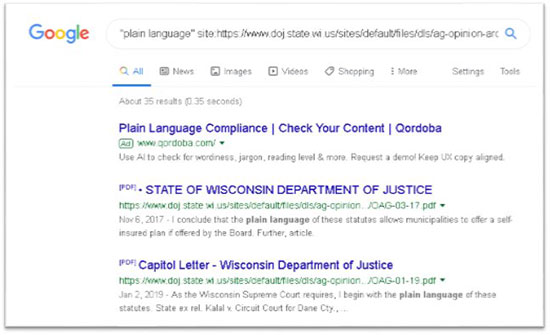
Aug. 7, 2019 – The law is ever-changing, shaped by additions and deletions, opinions and interpretations. When the law changes, what happens to the old versions?
You can find archived laws and practice materials in a variety of places. While not an exhaustive list of sources, this article provides a roadmap for researching archived laws and older interpretations of the law.
Researching archived legal information is useful for discovering what the law was at a particular point in time.
Consult a Librarian
We’ll begin with the easiest solution: contact your local law librarian for help. Many legal materials are collected in print or digitized by libraries. That unusual citation you’re tracking down may be an average request for a law librarian.
Instead of digging through search engine results, consult a research guide to find key primary law and interpretive sources quickly. A great book to own is Wisconsin Legal Research, by Patricia Cervenka and Leslie Behroozi. This book surveys the major areas of Wisconsin and federal law, and identifies print and online sources.
Consult library research guides for quick links, such as these Wisconsin law guides from the Wisconsin State Law Library, UW-Madison Law Library, or Marquette University Law Scool’s Eckstein Law Library.
Laws & Regulations
For researchers of federal, state, and local laws, there is a large amount of information online for free or within specialty databases. In the mid-1990s, government websites saw increased development and a push toward online or digital documents. When older government information is available online, it’s often available back to around that time period.
Federal information is widely available, both online and offline. Nationwide, some libraries are designated depository libraries, which collect and maintain government collections, and often have specialized subscriptions that make federal research a little more efficient.
Congress.gov is the supersite for federal legislative information, with an archive dating back to 1973, and an extensive coverage chart. Supplementing this, the Library of Congress provides searchable access to over 60 years of theU.S. Code on their website.
Govinfo.gov is the centralized hub for government publications and provides a gateway to other official websites of published legal documents. The Code of Federal Regulations is online from 1996, and the Federal Register goes back to 1936.
Wisconsin can count itself lucky; we have a great archive of old statutes and laws, stretching back for decades and available for free on the Wisconsin State Legislature’s website. While regulations can be more difficult to track over the years, removed pages of the Administrative Code, along with the Administrative Registers, can be searched back to 1956.
Libraries, such as the Wisconsin State Law Library or Legislative Reference Bureau, keep archives that go back even further, plus supplementary legislative materials like drafting files. (Learn more about researching the Administrative Code in next month’s InsideTrack.)
Researchers trying to find archived versions of other states’ laws can have a more difficult time, however. Every state is different in terms of what is available on official websites. For example:
When the information you need isn’t available for free online, turn to subscription databases like HeinOnline, Westlaw, Lexis, or FastCase (State Bar members have complimentary access to Fastcase).
HeinOnline provides extensive access to historical state material in their State Statutes and Session Laws libraries. This database is available for free to State Bar members who sign up for a Wisconsin State Law Library card. Browsing this collection by state and date is easy, and you can also enter a citation if you have a specific law and year you’re trying to find.
HeinOnline is also a great resource for searching federal law back to its inception, with full coverage of the U.S. Code, Code of Federal Regulations, and related publications like the Congressional Record and Federal Register.
For older West-published annotated statutes, head to Westlaw. The quickest way to see what’s available is to type the state name, plus “statutes annotated – historical” then choose the collection link that appears. Wisconsin coverage goes back to 1989.

FastCase provides access to Wisconsin Jury Instructions from 2015 to current, as well as recent Attorney General Opinions.
Agency Opinions
While Wisconsin Attorney General Opinions are available on the Department of Justice website back to 1911 and in print at many law libraries, my favorite way to search the whole archive is through HeinOnline. You can search Wisconsin’s AG opinions back to 1902, plus other states and the U.S. AG opinions using the same powerful search.
Federal and State agency decisions are available in myriad places. Always check the agency website first, since the general trend has been to add to online archives. Sometimes the website search is frustrating to use. In those situations, a Google site search can be used to search only a subsection of documents from an agency’s website.

Libraries also keep published reporters, or subscribe to databases which include them. Reporters are great sources for finding older opinions and decisions from agencies.
Court Opinions
For Wisconsin court opinions, there are a number of official and subscription database options. FastCase, Westlaw, and Lexis are all great sources to find older appellate opinions. Some collections in these databases can also provide access to a limited number of circuit court opinions and documents.
Google Scholar, explained in “Legal research: are you a Google scholar?” in the June 5, 2019, issue of InsideTrack, is a valuable free resource you can use to search state or federal opinions. Read appellate briefs from 2009 onwards in the Wisconsin appellate court records database. The Wisconsin State Law Library provides a guide to other appellate briefs collections, with archives online, in print, and on microfiche.
Federal opinions are available from a number of sources. When in doubt, check the Library of Congress for online archives, like the U.S. Reports collection, which reaches back to 1791, or research guides like this Researching judicial decisions overview.
Court Rules
Researching older court rules is one area where asking a law librarian is the fastest way to get what you need.
Also, it can be helpful to consult a print archive for older versions of the rules. Wis. 2d citations to Supreme Court Rule Orders turn up nothing in popular case law databases. Researchers looking for archived rule orders, older versions of Supreme Court Rules, or related materials like Judicial Council archives, are best served by a library.
Archived Websites
Just because something was online doesn’t mean it is archived. There are many library and nonprofit-backed initiatives to preserve websites. One of my favorite tools for locating information that is no longer online is a website called the WaybackMachine, from the Internet Archive project. Search a broken link to see if it has been archived.
Because the Wisconsin State Law Library (WSLL) website has been around since 1999, the legal topics pages can be used to locate old agency links and documents. Browse the current URL (wilawlibrary.gov) or the old URL (wsll.state.wi.us) in the WaybackMachine website to find archived legal topics pages with links to older agency domain names and publications.
I frequently use the WaybackMachine to locate older versions of local ordinances that were online, but have been removed or changed. To do this, I browse the archived municipal website or I search for the old URL from an archived version of the WSLL Ordinances page, like this version from 2010.
There are many other website archives to investigate as well, including the Wisconsin Digital Archives, Library of Congress, and HathiTrust.
Book Editions
Books and articles are helpful sources for understanding the theory and practical application of the law. Law libraries may keep older editions for researchers.
The Wisconsin State Law Library, for example, keeps older editions of the State Bar of Wisconsin publications, removed or superseded Wisconsin Jury Instructions, Wisconsin Statutes Annotated volumes dating back to the 1950s, U.S. Code and U.S. Code Annotated, American Bar Association titles, and major treatise sets.
Archives Abound
Once you know where to look, archived legal information is everywhere. Increasingly, initiatives to digitize older information are getting off the ground, or filling in a backlog of missing information. Every archive is a little different, so ask a librarian for help finding the best source for your research.
